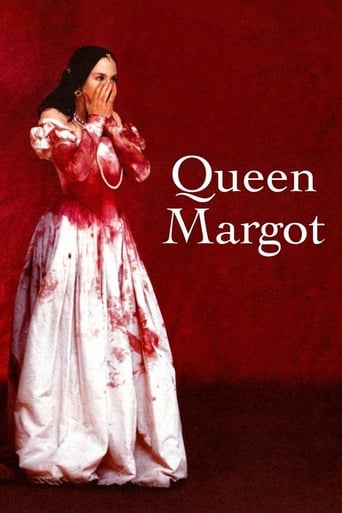She was the wife of a king… and the lover of a soldier.
"La Reine Margot," a 1994 cinematic masterpiece co-produced by Renn Productions and ARD Degeto in France and Germany, is a vivid adaptation of Alexandre Dumas' historical novel. Directed by Patrice Chéreau, the film plunges viewers into the tumultuous world of 16th-century France, capturing the political intrigue and religious strife that defined the era. The narrative centers on Marguerite de Valois, known as Margot, portrayed with captivating intensity by Isabelle Adjani. Her marriage to Henri de Navarre, a Protestant, is a strategic move to reconcile Catholics and Protestants, but it quickly becomes a catalyst for the infamous St. Bartholomew's Day Massacre. The film's strength lies in its meticulous attention to historical detail and its unflinching portrayal of the brutality and corruption of the time. Chéreau's direction brings to life the opulence of the French court alongside its dark underbelly, creating a stark contrast that is both visually stunning and emotionally gripping. The performances are equally compelling, with Adjani's Margot navigating a treacherous landscape of political machinations and personal desires. Her chemistry with Vincent Perez, who plays her lover La Môle, adds a layer of poignant romance to the film's otherwise grim narrative. "La Reine Margot" also excels in its exploration of the complex interplay between religion and politics. The film does not shy away from depicting the horrors of religious persecution, as seen in the chilling scenes of the St. Bartholomew's Day Massacre. Yet, it also delves into the personal struggles of its characters, particularly Margot, who finds herself torn between duty and her own heart. This nuanced portrayal of historical figures as real people with conflicting emotions and motivations adds depth to the film, making it more than just a recounting of historical events. In conclusion, "La Reine Margot" stands as a testament to the power of historical drama to illuminate the past while resonating with contemporary audiences. Its rich tapestry of love, betrayal, and political intrigue, combined with its stunning visual and emotional impact, ensures its place as a timeless piece of cinema. The collaboration between French and German production companies not only highlights the film's international appeal but also underscores the universal themes of power, faith, and human resilience that it so masterfully explores.
Año1994
Página principal
Duración138 minuto
Ingresos1318578$
GénerosDramaHistoriaRomance
Países de producciónFranceGermanyItaly


